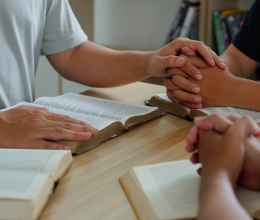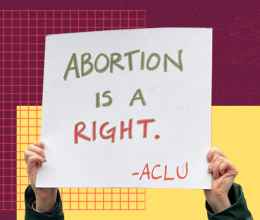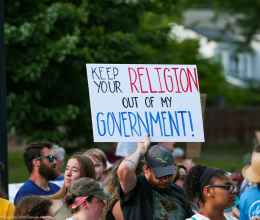Elkhart County School's 2015 'Christmas Spectacular' Live Nativity Scene Ruled an Endorsement of Religion
A child and his father, along with the Freedom From Religion Foundation and the ACLU, won a preliminary injunction on December 2, 2015 to stop Concord Community Schools in Elkhart County from putting on a live nativity scene as part of its 2015 "Christmas Spectacular."
Public school curriculum must always serve a secular educational purpose.
The ruling, by Judge John DeGuilio of the U.S. District Court, Northern District of Indiana, said the live nativity scene as planned by the public school for its annual event violates the Establishment Clause of the First Amendment to the U.S. Constitution by conveying an endorsement of religion.
In his decision, the Judge said, "A reasonable observer could perceive that the nativity scene is actually onstage for the religious message it conveys instead of as an outlet for the performing talents of the students or for the pedagogical value of its performance."
"The nativity scene is emphasized in a manner unlike any other aspect of the show," Judge DeGuilio added, noting the "striking disparity" between the nativity scene and other portions of the show. While he also noted that "It is not per se impermissible to portray a live nativity scene with student performers, so long as the totality of the circumstances of such a performance do not convey an endorsement of religion," he also cited as a factor in his ruling that "case law has evinced special concern with the receptivity of schoolchildren to endorsed religious messages."
What we can learn from this case
- Public schools must remain neutral when it comes to religion. Even though the school included, as part of the show, brief segments about other religions' celebrations, these did not improve the imbalance created by the live nativity scene, both because of its length and its outsized emphasis in the program. This would also be true if another religion had been celebrated on the same scale in the school's program.
- Schoolchildren can be vulnerable to religious messages from those in authority. That is why care must be taken in public school settings to guard against conduct that promotes religious teachings.
- Content matters. The Judge said the nativity portion of the show had a "distinctly different character" than the rest of the show: "It conveys solemnity and reverence, as if the audience is being asked to venerate the nativity, not simply acknowledge or appreciate its place in the winter holiday season."
Some guidelines on religion in public schools:
Public school curriculum must always serve a secular educational purpose. Religion can be taught in the public schools setting if the following requirements are met:
- The purpose is to examine religion's role in history, art, literature, society or other secular subjects;
- such teaching takes place in an objective, unbiased manner; and,
- such teaching does not promote or criticize any particular religion or set of beliefs.







